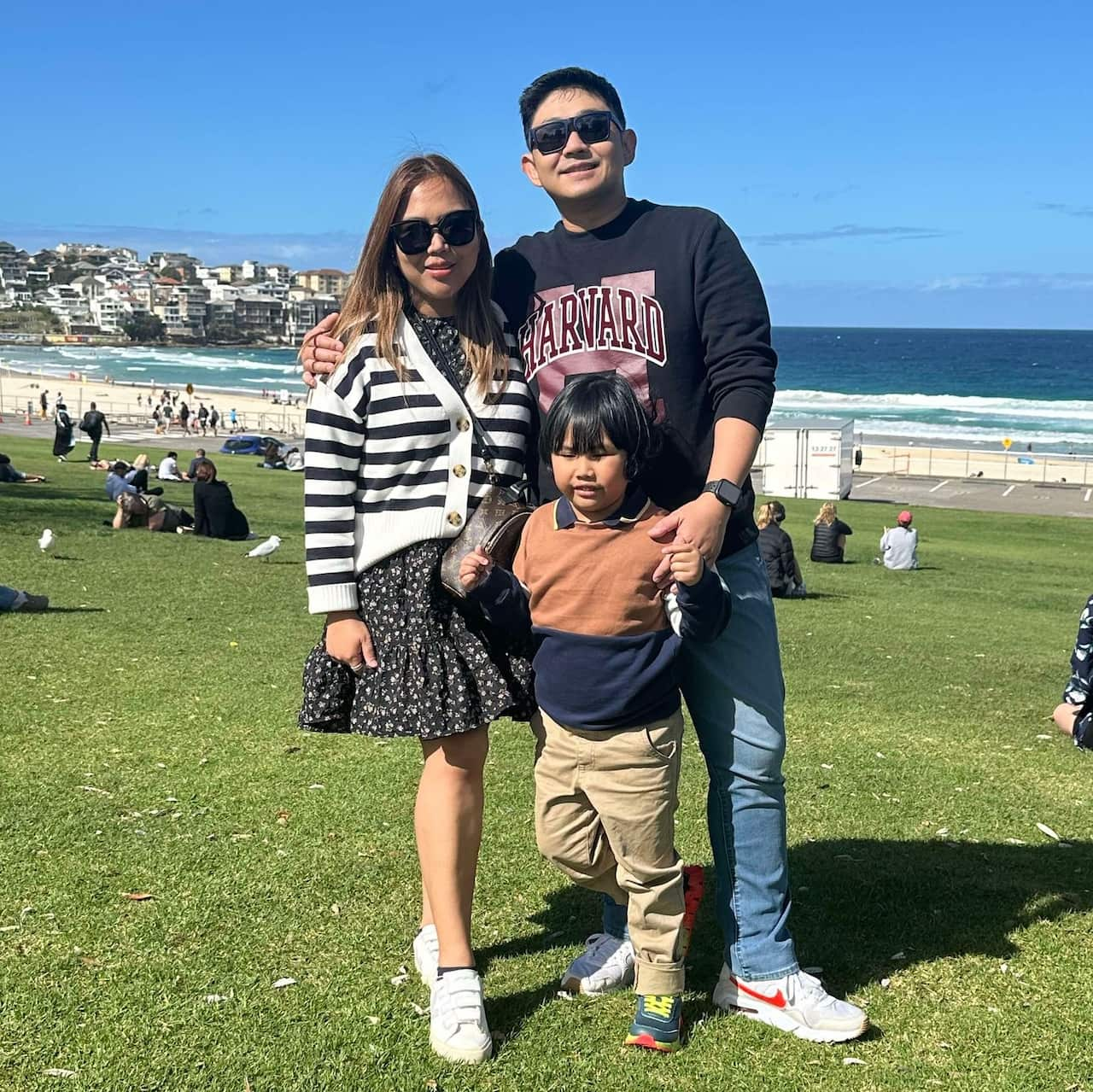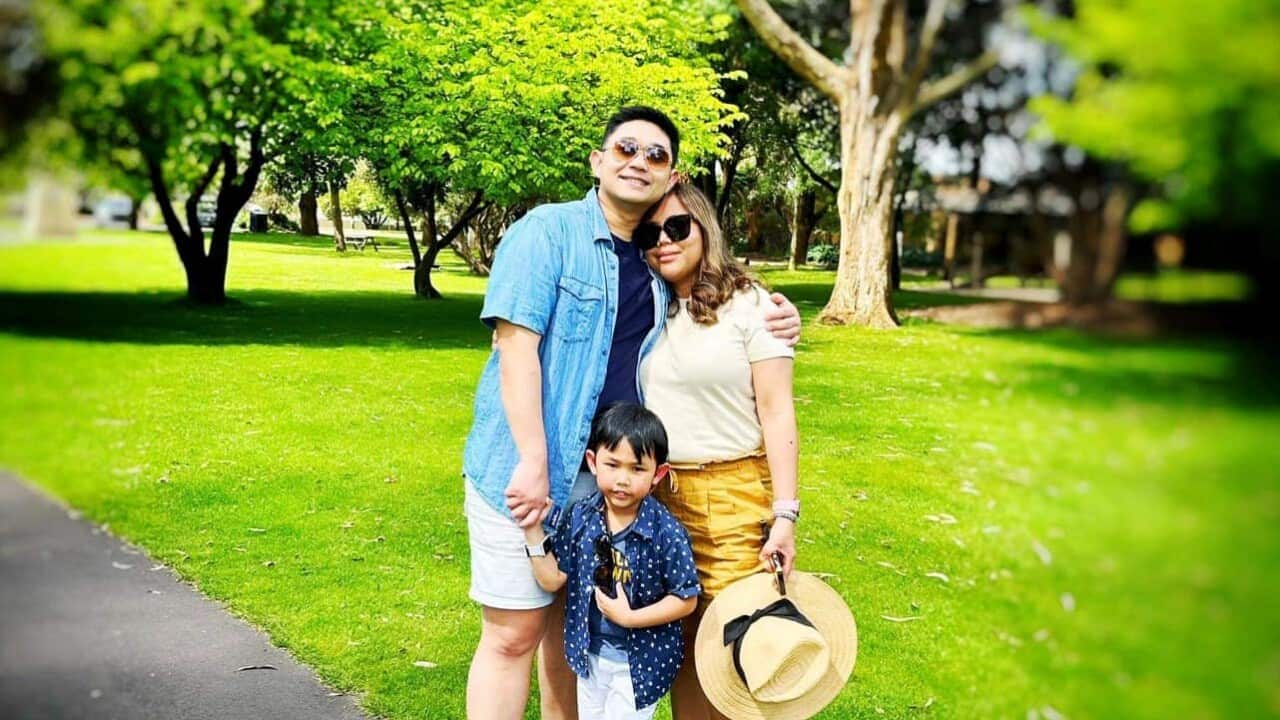Key Points
- Christian and Annie Vidal, both nurses, moved to regional Victoria after Annie first secured employer sponsorship.
- Despite early challenges, the family embraced regional life, saving more and purchasing a house and land.
- There’s been a growing trend of regional relocations since the pandemic, with a 16 per cent rise according to the Regional Movers Index.
Christian Paul Vidal says home ownership and early retirement are now realities since moving to regional Australia.
"I promised my wife that if she doesn’t want the rural life, we will go back to the city. But here, we're saving well, and we’ve already bought a house," he said.
"We're (also) working toward our dream of retiring early. In regional Australia, that feels more achievable."
Vidal, 34, and his wife Annie, moved to the quiet town of Edenhope in Victoria in 2020 after migrating from the Philippines.
As nurses, they received employer sponsorship and moved to the area with their young son at the height of bushfire season coupled with the COVID-19 pandemic.
While their initial plan was to stay for two years, the rising cost of living and other practical considerations extended their stay in the regional area.

Christian Paul Vidal, 34, his wife Annie and son Paulo. Credit: Supplied
Their experience mirrors a growing trend, as the
According to Regional Australia Institute CEO Liz Ritchie, "the regions provide so much: affordability, a sense of community, fulfilling career options and green space. Let’s ensure this new era of 'regionality' is met with vision and leadership to drive a more decentralised Australia".
Australia’s rising inflation and cost of living pressures have led families, like the Vidals, to reconsider their future.
Despite interest rates remain high, forcing families to prioritise needs over wants.
"We need to make sacrifices like focusing on essentials over luxuries," Vidal said.
"Before deciding to order takeout, you’ll prefer to cook instead. Shopping trips have become a once-a-month activity, usually only when we visit the city."
'Less temptation to splurge'
Living in a rural area has helped the couple cut back on unnecessary spending. "There’s less temptation to splurge in a small town," Vidal said.
Their budgeting strategy involves allocating their salaries immediately to household expenses, mortgage payments, joint savings, and remittances to their families in the Philippines. The remainder is used for day-to-day living costs.
"If you compare the cost of goods, I can say that it's cheaper in the city, especially when it comes to fresh meat like pork, fish, and vegetables. However, when it comes to rent and other expenses, you can save more in rural areas,” Vidal said.
In 2021, the couple purchased a three-bedroom house on an 800sqm block in Edenhope for just $140,000.
"It’s not brand new, but we’ve renovated it ourselves, and now it’s a great place to live," Vidal said.
“The price we paid for our house here is a fraction of what we would’ve spent in the city."
The lower cost of living in Edenhope allowed the Vidals to build financial stability, something they struggled to achieve in the city. But while their move was financially motivated, it hasn’t come without its share of obstacles.
'Is this still Australia?'
Vidal said when the family first arrived in Edenhope, he had asked "Is this still Australia?" as there were "no tall buildings and no traffic, (just) farmland and open spaces".
With a population of just under 1,000 according to the 2021 Census, Edenhope, a sleepy farming town in West Wimmera Shire only 30km from the South Australia-Victoria border and more than four hours away from Melbourne, is a far cry from what they were used to.
"We didn't really like remote rural areas before since my wife and I both grew up in the cities," Vidal said.

The Vidal family in the Melbourne CBD. Credit: Supplied
"For the first three weeks, I couldn’t find work. I eventually started working as a kitchen hand at a local pub and later took up jobs in domestic services and aged care," he said.
While both are now working full-time as nurses, Vidal noted that healthcare infrastructure was limited in rural areas.
"Edenhope only has a small urgent care centre, a ward and a nursing home. For more complex medical needs, we have to drive an hour to Horsham or even further to Ballarat," he said.
Public transport also posed challenges along with early shop closures.
He added another disadvantage was being a six-hour drive from the airport.
Embracing rural life
Despite the challenges, there have been plenty of rewards for the Vidal family.
The peace, slower pace of life and tight-knit community have made a lasting impact on their outlook.
"We’ve thought about moving back to the city a few times but the truth is, we’re still here. We’ve learnt to enjoy the place, a simpler life — no traffic, no stress," Vidal said.
"We have what we need here: shops, four restaurants, post office. We go to the city sometimes to shop or visit but the good part is that we are far away (so) we don't have temptations (to buy) unnecessary luxury or items."

The Vidal family enjoys a simpler life in a rural area with a newfound community. Credit: Supplied
"We’re actually considering buying another property here, something we couldn’t even think about if we lived in the city," Vidal said.
LISTEN TO

‘We save more money but it's not easy’: Filipino nurse shares life changes and adjustments in rural Australia
SBS Filipino
26/09/202420:01








